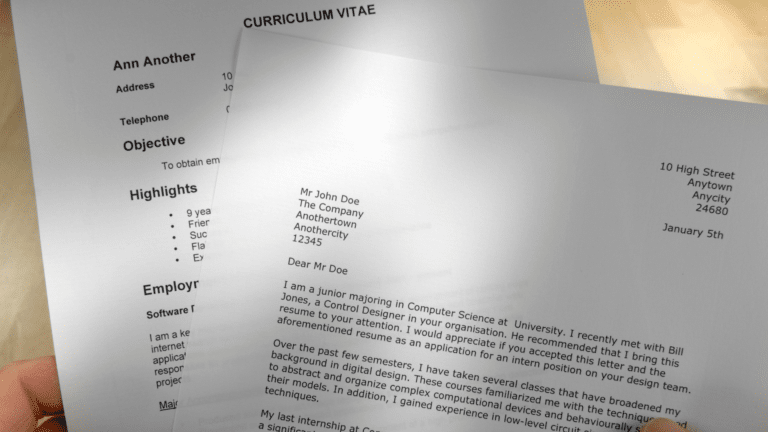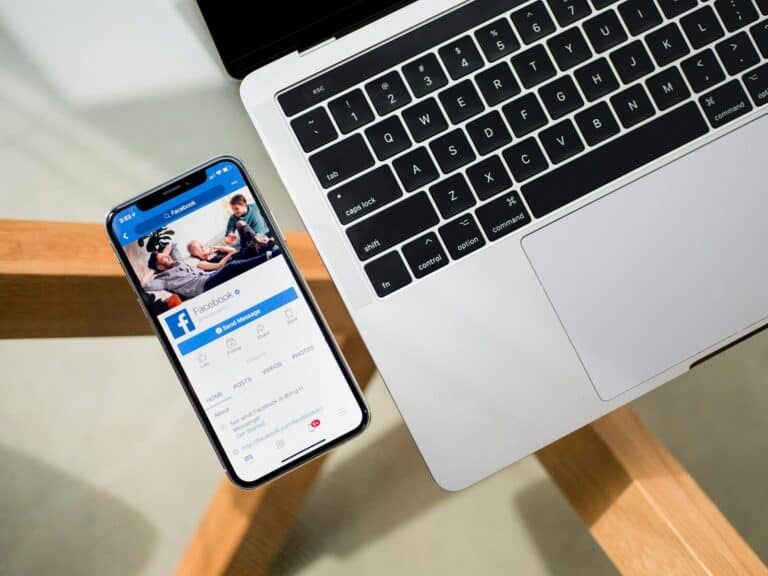When you have to send out tens of resumes a day, needing to create a custom cover letter for each application can seem like too much work, which begs the question: are cover letters necessary nowadays?
In a highly competitive job market, oftentimes, a resume alone won’t be enough to make the cut. This is where a cover letter comes in. A well-crafted cover letter can help your application stand out and increase your chances of moving on to the next stage.
Learn everything you need to know about cover letters and how you can create a winning application today!
Key Takeaways
- Not all employers require cover letters, but writing one can give your application a competitive edge.
- Cover letters are an important part of any application. They demonstrate your interest, showcase your writing skills, help establish an initial connection, and favorably frame your lack of experience.
- You don’t need a cover letter when the job ad specifies that, when you have nothing significant to add when you apply on job boards, or if you are planning to submit a generic one.
- Make sure to be concise and to thoroughly research the company and the position when writing a cover letter.
Are Cover Letters Necessary in 2024?
According to CNBC, around 58% of workers deem cover letters unnecessary. And only 10% say they should be a requirement when applying for a job. Despite this statistic, there are several reasons why cover letters are still necessary in 2024.
Since not all employers ask for a cover letter, taking the time to write one can give you a competitive advantage when job hunting.
Aside from adding a personal touch, a cover letter can also express your passion for the position, as it usually involves doing some research on the company. A cover letter is a great way to explain any gaps in your work experience and to go into detail about any relevant experiences not found in your resume.
Why Are Cover Letters Important?
Cover letters are important because, for some companies, they can be the deciding factor when hiring an individual. Some applicants tend to send out generic cover letters in the hopes that one sticks. We highly recommend customizing your letter for each position you are applying for.
Let’s go over some of the most important reasons why cover letters are necessary in today’s job market.
#1. Cover Letters Convey Your Interest in the Job
Are cover letters necessary for every job application? No. But taking the time to write one shows your potential employer that you are genuinely interested in the job.
Not to be confused with a letter of interest, a cover letter allows you to explain why you would be a good fit for the position and why you want to work for the company. It’s also a way to show the recruiter that you want the job enough to spend time writing a personalized letter.
#2. They Elevate Your Application
A well-written cover letter can be a great way to showcase your writing skills. Employers value individuals who can express their thoughts well, so this can give you an advantage over other applicants.
If you’ve never written a cover letter before, you can find a cover letter format or template online. There are several guides that go into detail about the proper cover letter structure. They explain the step-by-step process, so you can craft the perfect letter.
#3. They Can Make up For Lack of Experience
While cover letters are not always necessary if you don’t meet all the requirements or experience needed for the job, it can help you prove why you are perfect for the position anyway.
Use a cover letter to highlight your soft skills, such as creativity, work ethic, and problem-solving skills, and explain how these can help you succeed in the role.
Unlike hard skills, soft skills are more difficult to learn, as they are often innate and further developed through different experiences in life. Which is why they can make you a valuable addition to the team. You can also use this opportunity to express your dedication to the position and your eagerness to learn more skills.
#4. Cover Letters Allow You to Tell Your Story
Since they both discuss your work history, you might be asking, Why are cover letters needed if you already have a resume?
A resume presents your work experience in a factual manner. A cover letter, on the other hand, allows you to go into detail about each position. It gives your potential employer a chance to understand your current situation better.
For instance, maybe you have a large gap in your resume or a sudden career change. A cover letter allows you to explain the reasons behind them and frame them in a favorable manner.
#5. They Help Build a Connection With the Employer
Since a large percentage of respondents in the aforementioned survey viewed cover letters as unnecessary, does that mean that cover letters are dead?
Not really. In fact, a cover letter can help you establish a more meaningful connection with your potential employer or a recruiter.
Walk them through your accomplishments and motivation for applying. Take the time to explain how your future career path aligns with the company’s interests. Discuss your relevant work experience and explain how you will be using it to be successful in your new role.
By building this rapport in advance, you’ll leave a deeper mark in their memory that lasts much longer than if they had simply read from a resume, which will likely translate into higher chances of getting an interview.
When Not to Include a Cover Letter?
You don’t need to include a cover letter when applying if any of these situations apply to you:
- When you don’t plan on personalizing it. Although cover letters are often necessary, the one thing worse than not submitting one is sending out a generic copy. If your cover letter simply glosses over all your experiences and skills, it won’t have the same impressive effect as a custom one.
- When it is an exact copy of your resume. If your cover letter only includes information already found on your resume, it’s best not to send one at all. Reading the same content over and over won’t impress potential employers. Instead, discuss personal motivations and interests relevant to the position or the industry you are in.
- When the job doesn’t require one. Cover letters are always necessary, unless the job ad specifies that there is no need for one. Submitting one anyway won’t show eagerness or initiative. It will only show that you can’t follow instructions. In this case, we recommend including a brief introduction in your email when applying.
- When you apply on job boards. When applying on online sites like LinkedIn, you usually have a profile where you introduce yourself and discuss your experiences. Because of this, it may be redundant to include a cover letter.
6 Pro Tips on Writing a Memorable Cover Letter
After understanding why cover letters are necessary, it’s important to know how to write a memorable cover letter.
Before composing your cover letter, it’s important to research your potential employer. This will allow you to articulate why you would be a good fit for the company.
We also recommend double-checking the job description and making sure your work history matches the skills and qualifications needed for the position.
#1. Pay attention to how you start your sentences
When you start writing, be mindful of starting sentences with “I,” as it puts the focus on you and not what you can offer. Instead of saying, “I am an expert on this subject matter,” highlight your skills by saying, “My expertise on this subject matter has helped our team achieve this.”
#2. Be mindful of overused phrases
Using cliche buzzwords and phrases, such as dynamic, quick learner, and highly organized, might seem like a good way to promote yourself. However, recruiters go through hundreds of applications a day, and the chances of them seeing these exact same words on hundreds of applications are high.
To make your application stand out, it’s best to provide examples that show how you embody these traits. If you describe yourself as a forward thinker, discuss a time when you came up with an innovation that benefited your team.
#3. Use active voice
Lastly, make sure you write using the active voice. Passive sentences can be wordy and unclear, so it’s best to avoid them in your letter. In comparison, active sentences get your point across more quickly and efficiently, which makes your letter more interesting and easier to read.
#4. Follow the standard structure
Now that we’ve covered the substance content, we should briefly touch on the actual structure of your cover letter.
A cover letter is a business letter and should include the following sections:
- Header
- Salutations
- Body
- Signature
You should also aim for the total cover letter length to be around 250 to 400 words, condensed into three to four paragraphs.
While it’s good to be thorough, if your letter is too long, the recruiter might just skim or skip it completely.
Final Thoughts
If you are currently job hunting, it’s important to remember that cover letters can play a crucial role in your job application. When written properly, it can elevate your application and help you make a lasting impression on recruiters.
However, it’s also essential to know when you should not send a cover letter, especially when explicitly stated not to. By understanding the importance of a cover letter and knowing how to use it strategically, you can increase your chances of landing your dream job.
Next time you apply, don’t underestimate the power of a skillfully written cover letter.
Are Cover Letters Necessary FAQ
#1. Is it unprofessional not to have a cover letter?
It is not unprofessional to not have a cover letter. Unless the job posting specifically asks for a cover letter, it is always optional. However, including one can show your interest in the position and set you apart from other candidates.
#2. Do I need a cover letter for an internship?
You likely won’t need a cover letter for an internship, but we recommend submitting one when applying nonetheless. A cover letter allows you to discuss any relevant skills and information that the recruiter may need to determine your suitability for the position.
#3. Do recruiters and hiring managers read cover letters?
Recruiters and hiring managers often read cover letters, but that varies depending on the role you are applying for. Some positions require the candidate to have excellent writing or communication skills, and a cover letter is a great way to gauge those skills.
#4. What are the 3 main things needed in a cover letter?
The three main things needed in a cover letter are:
- Proof that you have done proper research on the company
- Your relevant skills and experience
- Your interest in the position and your motivation for applying for job
#5. Do I need a cover letter when applying for a job online?
You need a cover letter when applying for a job online unless they explicitly state not to or if there is no place to upload the cover letter. If a recruiter is trying to decide between you and another candidate, a cover letter can give you an advantage.










